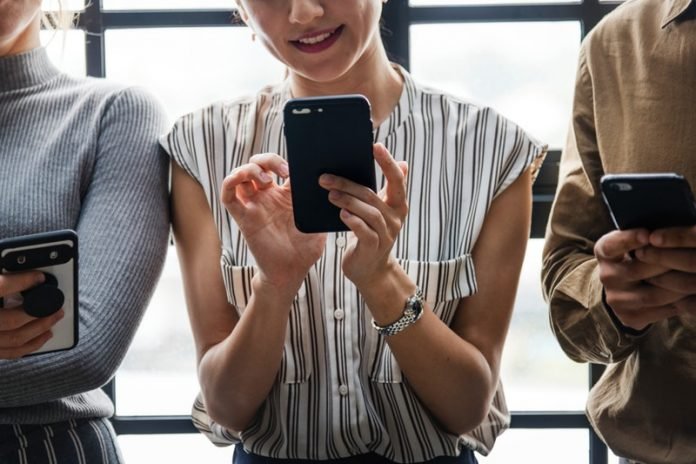
In a new study, researchers have identified the personality traits that increase or decrease the degree of vulnerability to so-called “nomophobia”.
It is defined as the fear of being out of the range of mobile phone contact—a modern-age phobia.
The research was conducted by a team from the University of Granada.
The team analyzed the personality traits that accentuate people’s risk of suffering this type of addiction or protect them from it.
This addiction generates dependence on the mobile phone, and affects up to seven out of ten Spaniards, according to some studies.
It can become a disease that disrupts individuals’ normal routines or prevents them from living a normal life.
Prolonged use of mobile phones can also cause sleep problems, depression, and retinal damage, it can generate muscle tension, and it affects behavior, like any other addiction.
The team tested almost 1,000 Andalusian adults in the study.
The addiction is measured by the number of hours spent using the phone in place of other activities and the fear or anxiety experienced when the individual has no access to their mobile device.
The team found the possibility of suffering from this phobia depends on the individual’s main personality traits, such as their values, spirituality, in the broadest non-religious sense, or self-transcendence.
Certain factors help protect against nomophobia, including values such as the predisposition to collaborate with others and a form spirituality that is in line with the personal growth movements, characterized by people who are “socially tolerant, empathetic, helpful, and compassionate”.
By contrast, people who suffer from this addiction to mobile phones present features related to gratification-seeking behaviors, to self-interest, or to behaviors that require positive reinforcement from others.
One researcher of the study is Francisca López Torrecillas, Professor of the Department of Personality, Evaluation and Psychological Treatment.
Copyright © 2019 Knowridge Science Report. All rights reserved.



